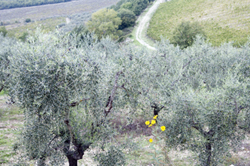Turning waste water into fertiliser
Olive oil is one the agricultural mainstays of countries bordering the Mediterranean Sea. Unfortunately, the cultivation of olives and the subsequent production of olive oil have been associated with extensive environmental degradation across the region. Partners from both sides of the Mediterranean teamed up during the NEWTECHOMW project to investigate ways to reduce the environmental impact of olive oil mills. One clever idea they came up with involves the reuse of olive oil mill waste waters (OMW) as a fertiliser. Biologists with the University Cadi Ayyad in Morocco were faced with the challenge of overcoming initial laboratory findings indicating that OMW was toxic to some plant species. They applied OMW to plots of several species, including date palm, maize, atriplex and wheat, using a technique called fertirrigation. Compared with control plots, the fertirrigated plots experienced stronger growth without showing any negative side effects. Possible impacts on soil health were also studied. Measurements of electrical conductivity indicated a rise in soil salinity. However, many beneficial soil parameters were enhanced, including organic matter content as well as levels of the three main soil nutrients: nitrogen, phosphorus and potassium. In addition, the soil pH was relatively unaffected thanks to the neutralising capacity of the native calcareous soil. Thus, rather than causing environmental damage or necessitating expensive waste water treatment facilities, OMW could be successfully recycled back into the farming industry. The NEWTECHOMW consortium is following up on these positive results.







